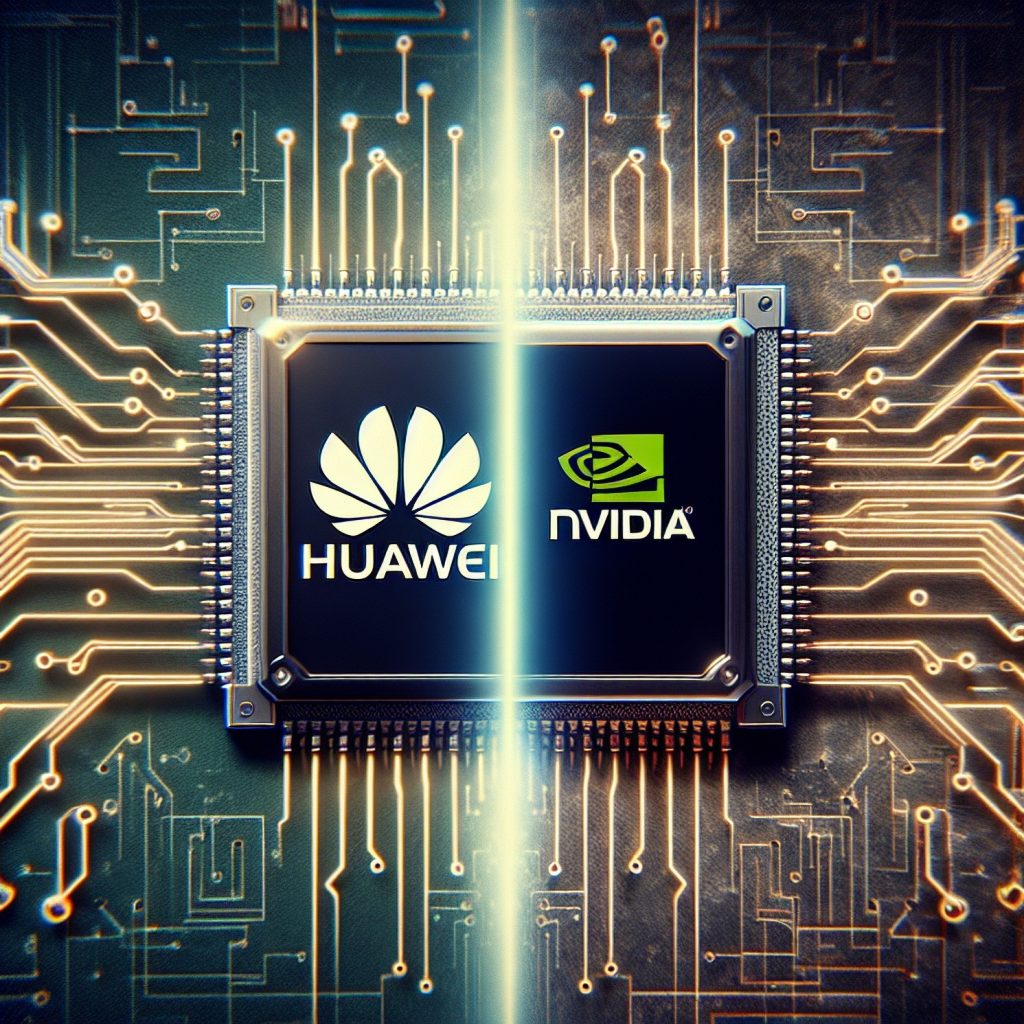
Shutterstock
As geopolitical tensions reshape technology supply chains and U.S. export controls tighten, new challenges and opportunities arise that are transforming the global tech landscape. While the West is looking to shore up its existing alliances and secure its supply chains through deeper partnerships and enhanced domestic production, the tech players in Asia are seizing the moment to accelerate their push for technological self-reliance.
Against this backdrop, China’s Huawei Technologies is preparing to test its most advanced artificial intelligence processor yet – the Ascend 910D. The company aims for this powerful new AI chip to serve as a competitive alternative to some of the high-end products offered by U.S. semiconductor giant Nvidia, signaling a broader effort to reduce reliance on foreign technology.

Shutterstock
Huawei aims for the Ascend 910D to compete with Nvidia’s H100, the most widely used AI chip in advanced AI systems. According to reports, Huawei has approached several Chinese tech companies to test the Ascend 910D. If the chip can match or surpass the performance of Nvidia’s H100, it could position Huawei as a key domestic competitor in the high-end AI processor market.
Last week, Huawei ramped up shipments of its 910C AI chip to Chinese customers, signaling a strategic acceleration in building the domestic AI hardware ecosystem. The 910 series has been useful as a local substitute for data centers, hyperscale enterprises, and AI research labs. However, it still falls short of Nvidia’s cutting-edge technology. To close this gap, Huawei is now advancing its efforts with the 910D, aiming to deliver greater performance and competitiveness in the AI chip market.
As of now, Huawei has not publicly disclosed detailed technical specifications for its upcoming Ascend 910D AI chip. However, the Ascend 910D is reported to be a much more advanced AI chip compared to the 910C, offering greater processing power, improved efficiency, and enhanced capabilities.
According to Chinese state news agency Xinhua, Chinese Premier Xi Jinping, during a Political Bureau study session on Friday, stressed the urgent need to advance fundamental research and “master core technologies such as high-end chips and foundational software.” He urged the development of an “independent, controllable, and collaboratively functioning AI foundational software and hardware system.”

Shutterstock
A recent U.S. House committee report on the potential threat posed by China’s DeepSeek to U.S. interests has raised concerns about Nvidia’s actions.
The report alleges that Nvidia has developed new semiconductor products specifically designed to bypass existing export control restrictions. Additionally, it claims that the company has leveraged intermediary nations to sidestep the ban, allowing its technology to reach restricted markets despite regulatory efforts. With Nvidia under pressure, Huawei is capitalizing on that uncertainty to position its AI chips as the go-to alternative for domestic companies.
Faisal Kawoosa, founder and lead analyst at Techarc, noted that China’s long-standing belief in building its entire tech stack and ecosystem is now bearing fruit. “Huawei developing the Ascend 910D is a step in this direction. It’s a significant move and will open up a dual AI front on the global arena,” he said. “Chinese tech companies have historically led mass adoption of technologies, and this could now accelerate global AI deployments as well.”
The news of Huawei’s new AI chip raises a critical question: how does its performance compare to Nvidia’s? According to Neil Shah, VP for research and partner at Counterpoint Research, the Ascend 910D is a meaningful advance, but it still lags Nvidia in critical areas. “From an overall system-level design — compute, memory integration, networking scalability, and crucially, software orchestration — Nvidia remains three generations ahead.”
Based on the technological environment Huawei is working within, the new AI chips may not have the sophisticated software ecosystem like Nvidia’s CUDA. As a result, Huawei’s AI chips may face challenges in optimizing workloads across GPUs and interconnected networks, which could hinder their scalability and efficiency.
As Huawei works to close the gap with Nvidia’s H100, Nvidia is already advancing to its Blackwell series, designed to handle the demands of trillion-parameter models.

Shutterstock
However, the Huawei AI chip news has been enough to cause some speculation in the U.S. market. Nvidia suffered a near 4% decline in a single trading day. This is not surprising as China accounts for a significant data center revenue for Nvidia, and the emergence of a worthy alternative in the region could signal a revenue decline for the U.S. chip maker. It’s worth noting that these concerns stem from the assumption that Huawei’s new AI chip will be able to match Nvidia’s performance. The true impact will only become clear once the chips undergo testing.
Having said that, the steady progress of Chinese AI hardware companies signals a shift in the global AI industry. As China’s domestic tech companies refine their technology, competition could intensify, potentially challenging Nvidia’s position.
Related
AI chip,AI race,Ascend,China,chips,export,H100,huawei,Jensen,NVIDIA,U.S.

